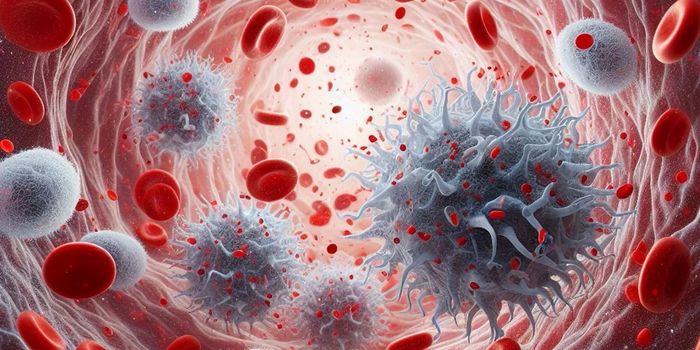Simple Blood Test Could Improve Colon Cancer Outcomes
A blood test that’s been around for decades might have the potential to improve treatment for thousands of colon cancer patients.
Colon cancer, also known as colon cancer or bowel cancer, is the third most common non-skin cancer type in the world. The cancer usually begins as small, benign lumps of cells that form polyps in the colon. Without proper removal, these polyps can turn cancerous and cause symptoms such as abdominal pain, rectal bleeding, weakness, and fatigue. According to a recent report, the incidence of colorectal cancer is expected to increase by 60% to more than 2.2 million new cases and 1.1 million deaths by 2030.
Knowing the type of colon cancer profile of individual patients could make a tremendous impact in their outcomes. As such, researchers from the Mayo Clinic scoured the National Cancer Database for colon cancer information on close to 41,000 patients. They found that a biomarker, known as carcinoembryonic antigen (CEA) can help doctors reclassify stage 2 colon cancer patients from average risk to high risk.
"The decision to give a patient chemotherapy after surgery is not a light one, and physicians must weigh the risks and benefits," said Kellie Mathis, a Mayo Clinic colon and rectal surgeon, and the study’s senior author. "We are currently using the blood test to help make these difficult decisions, and we suggest other physicians do the same."
By correctly classifying stage 2 colon cancer patients as high risk, doctors are able to guide patients to more appropriate therapies. And this may mean the use of chemotherapy. The team found that for patients with high levels of CEA, the five-year survival rate was lower (66 percent) as compared to those without elevated levels of CEA (76 percent). However, those with elevated CEA and chemotherapy in conjunction with surgery seemed to have better outcomes than surgery alone.
The blood test also saves stage 2, low-risk colon cancer patients from having to endure chemotherapy treatments.
"There is no good reason for a physician to omit this blood test, and more work needs to be done to ensure that all patients receive it," said Dr. Mathis. "If a patient with a new diagnosis of stage 2 colon cancer has an elevated carcinoembryonic antigen level, physicians should consider chemotherapy in addition to surgery.”
The blood test for CEA is currently not used for the stratification of stage 2 colon cancer. Rather, this test is performed after a patient’s surgery, for monitoring purposes. But if performed at the onset, the researchers argue the results of this test would better inform physician decision on colon cancer treatment.
Additional source: Mayo Clinic









